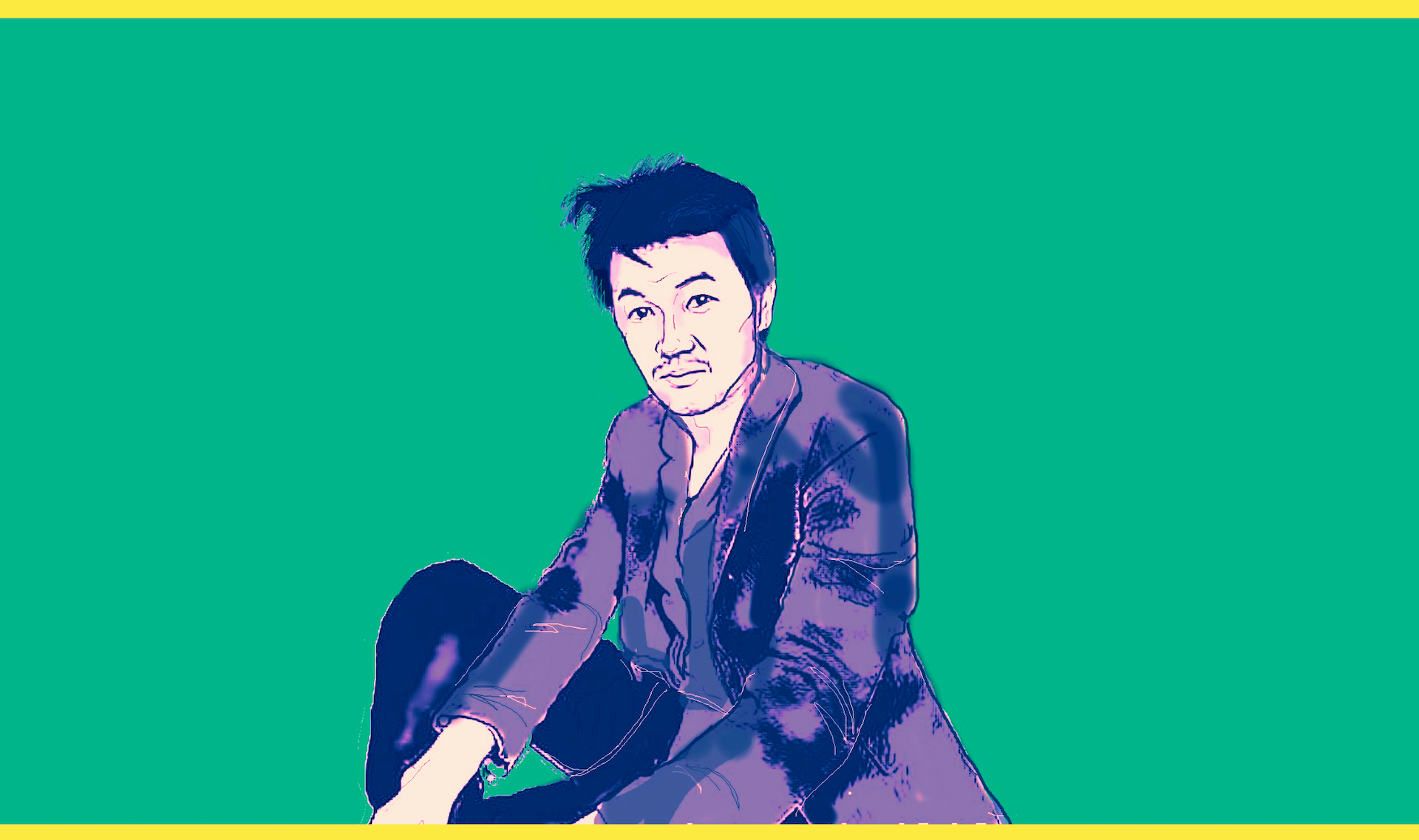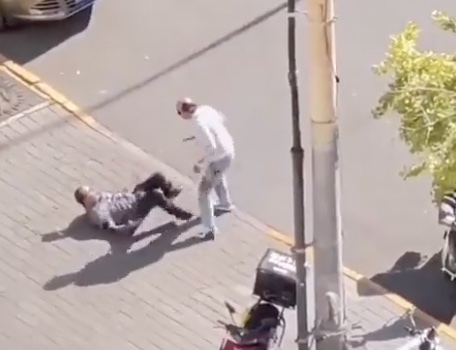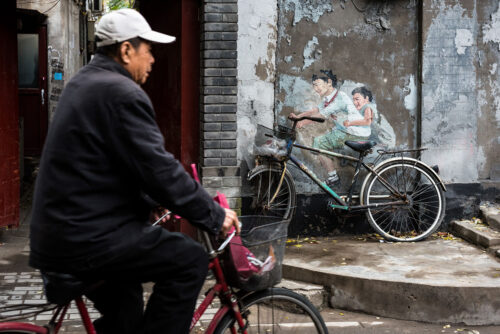How scared are people in Beijing of a COVID lockdown? — Q&A with Anthony Tao
A chat with Anthony Tao, The China Project’s managing editor, who lives in Beijing, where some of his fellow residents are stockpiling food in fear of strict Shanghai-style lockdowns that could come to the city if COVID rates continue to rise.

My colleague Anthony Tao is a long-time Beijing resident who remains unflappable despite growing fears in the city that people may end up locked down in their own homes without enough food, a fate that has befallen many people in Shanghai.
Is he sensible or naive?
I spoke to him by video call. This is an abridged, edited transcript of our conversation, part of my Invited to Tea interview series.
—Jeremy Goldkorn
It’s Friday, May 6, 11:30 p.m. Beijing time. How does it feel there? What are people around you talking about in terms of COVID and lockdowns?
The mood changes every day and the situation does as well. To give you a quick summary of everything that’s changed in just the last two days:
Earlier this week, it was the May 1 holiday. It was a holiday week and one of the things that was stipulated was that people couldn’t really go anywhere. And there were these rules: for example, mandated COVID tests, the stipulation that restaurants could only have orders for delivery and carryout, no dining in. There’s the closure of nonessential establishments: KTVs, movie theaters, gyms, indoor virtual golf courses, etc.
Schools were closed, of course, but they were closed for the holiday. There was some sort of expectation that by next Thursday, people would be back, but now we don’t know. All that’s up in the air.
The most recent announcement from late yesterday was that these May holiday restrictions are going to be extended. Extended indefinitely is the implication.
But when you talk to business owners, talk to teachers, I think there’s still a sense that “indefinitely” doesn’t mean one month, it means much closer to one week.
Since the Shanghai lockdowns began, I’ve been quite neurotic about you and Beijing, telling you to buy a big sack of rice and stuff. But you’ve been very sort of blasé about the whole thing. Are you still feeling equally confident that you don’t need to buy a big sack of rice?
Yeah. Not all situations are the same, and this applies to cities, but also within Beijing.
I’ll first just speak about my own personal situation. I live in a hútòng 胡同. Our little neighborhood is one square kilometer; it would literally be impossible to keep people within their houses all the time because many have to go outside to use the bathroom.
You mean, they have to go outside to the public toilets because they do not actually have their own toilets in their houses?
Exactly. And I don’t think anyone in my immediate area is concerned about running out of food. There are also these little stores, like grocers. I guess the New York equivalent would be bodegas. They’re well stocked. And nearby there are a couple of big luxury malls and their supermarkets are always stocked with food.
Still, I think it’s wise for people to stock up on food…
But you haven’t bought a big bag of rice yet?
I have not. What I tell myself is that I’m leaving the food for people who really are anxious about this.
But I truly don’t believe that the situation here will be as bad as it was in Shanghai.
Why not? In your neighborhood, you say you can’t actually lock people in their houses because they literally have no toilet, but that’s not actually how most people in Beijing live. That is the old city. Nowadays, most of the city lives in apartment buildings, which are not that different to Shanghai.
I think there’s some signs that authorities have already learned their lessons from Shanghai. One of the first things that we heard about was that there were deals being made with delivery companies like Meituan to keep their services going if there was a lockdown.
Beijing’s a different beast than Shanghai. Beijing is the political nerve center.
So the leaders live in Beijing. And they are not going to let themselves go through the shit that people in Shanghai have to put up with?
The stakes are higher here. If you mess up here, there’s going to be more eyes on you. There’s going to be more scrutiny. It’s going to be easier for the leaders to hear about it. And they might actually also be affected.
But also there’s a tighter security apparatus here. It feels like there are just literally more people who work in security, whose job it is to keep people in check.
So if they lock down, they can do it more surgically because there’s like three dudes watching you in your neighborhood. So they can actually surgically isolate you more easily than in Shanghai?
That’s right. And my sense is that the city itself is a little bit more mapped out.
Now, there’s this other part of it, which is Beijing hubris, the sense of Beijing exceptionalism. I hear that from some of these old Beijingers around me: “Ah, we’ll do better than Shanghai, of course, because we’re Beijing!”
I think you yourself suffer from that!
Are people talking about other places, like Xi’an, Shenzhen, Ningbo, where there have been infection spikes and lockdowns, but seem to be doing okay now?
These other cities come up in conversations regarding Shanghai, actually. Some people ask out loud, “Why is it that these other cities were able to get things under control?” In that context, Shanghai feels like an outlier.
Right at the beginning of the pandemic, there was a lot of writing in the Western press — I think I wrote some of it myself — about how China’s mishandling of COVID-19 in the first weeks, the lying and covering up, and then the very strict lockdowns in Wuhan revealed some of the weaknesses of the authoritarian system.
And then a few months after that, the pendulum swung, as the U.S. and many European countries looked incompetent while people in China were living their normal lives, back to normal, as long as they did not want to travel internationally.
And now the pendulum of course is swinging the other way again. Many observers look at Shanghai right now and think: “Surely there’s something wrong with this system that leads to this result, where people are hungry, and dying of non COVID causes because of the lockdowns.
But are we being too quick to judge again? There was a piece in Britain’s Daily Telegraph today by a financial writer named Matthew Lynn, who says that it may look terrible in Shanghai right now but “by the autumn, the relentless rise of the Chinese economy will be back on track” while the West will still be mired in all kinds of economic crises.
How are you feeling in terms of this? You don’t even have to answer for yourself, but for the people around you in Beijing, is there a perceptible shift in people’s faith in the Chinese system to deliver results?
Well, Jeremy, as you know, people here in China are always willing to criticize the government. I think that’s something that people on the outside don’t understand. They criticize them all the time.
Society’s set up in concentric circles, where you trust people at the very center, which is your family, your friends, etc…And then at the very fringe, of course, foreigners, and even beyond that is the media, especially the Western media. So of course we never hear [Chinese people] being overtly critical of the government or any of their policies in the media, even though they moan all the time to people they trust.
But we certainly have seen more of these comments and criticisms leak out during this recent crisis in the last month. Probably more than I can remember since the death of Lǐ Wénliàng 李文亮, the COVID whistleblower, during the early days of the pandemic.
Is that a sign of something greater? Is there some seismic foundational change in Chinese attitudes towards their government? I think it’s too early to say.
This is a very fluid situation and things are changing fast.
As Xí Jìnpíng 习近平 likes to say “a time of profound change, unseen in a century.”
Speaking of him, my sense is that people here really feel done with lockdowns, but the only thing that matters is that the government is not yet done with COVID zero. On Thursday Xi just held a meeting where he reiterated that dynamic zero-COVID policy is here to stay.
My sense — and I think what a lot of people hope — is that Xi just wants to get to the National Congress in the fall. After he declares victory there, people will just gradually forget about…
This unpleasant spring?
Yeah.
How often do you have to get tested right now?
It depends on what district you’re in, but for me about once a week.
And then you have to upload that to your phone?
No, it automatically uploads.
You can’t do a home test. You have to go to an official place to do the test?
Exactly. In Chaoyang district alone, there’s something like nearly 300 free testing sites? That’s a lot of tests. And if you test that many people, you’re gonna get 50 new cases a day, which is about the rate right now.
What happens if you get tested positive?
You get taken to a quarantine center for a period of time, I don’t want to say the wrong number but I think it has now gone down from 14 days to 10 or 12 days, something like that.
Last question: At the beginning of the pandemic, I wrote a piece called The coming biosecurity state, where I suggest that China was going to learn lots of new tricks for checking up on what’s going on in people’s bodies and use that as part of ongoing security operations.
Do you think some of this stuff is going to stick around in the future?
Yeah, no question.
They’re going to use it for something else?
Oh yeah, yeah. The phone stuff, a hundred percent. They’re only going to try to surveil more. You heard about that recent adding of IP addresses to social media accounts?
And people are going to accept it more and more. The line for what’s normal is ever shifting. I heard an anecdote recently, a manager of a restaurant was talking about the extension of the restrictions, he was saying that all of his employees sort of just laughed at the news. As if this was funny that they couldn’t have any customers for another week. And he was curious as to why they weren’t outraged.
It’s normalized to them?
Laughter is a response when things get surreal, isn’t it? Laughter is a response to the surreal.
Invited to Tea with Jeremy Goldkorn is a weekly interview series. Previously:






